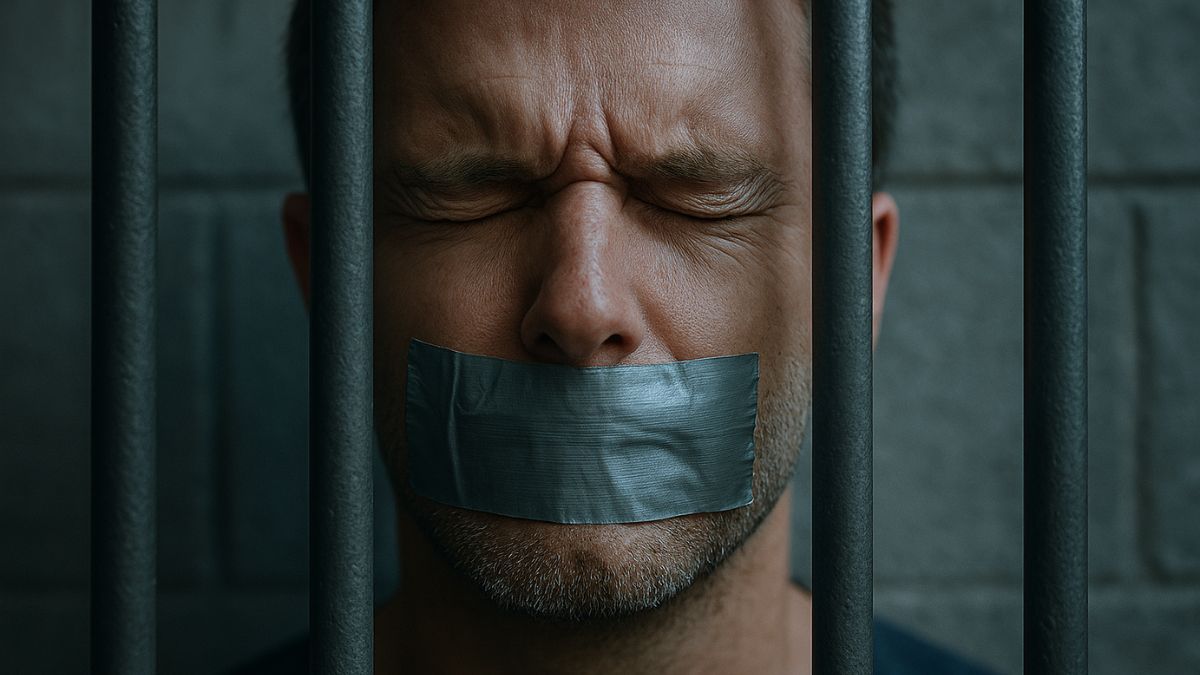Science
The Real Da Vinci Code? We May Have Found the Genius’s DNA
09 February 2026

Police in the UK make up to 30 arrests daily just for posts people share online. As The Times reports, this is how UK censorship functions today. This situation stems not only from political correctness but also from outdated legislation that simply doesn't fit the social media era.
Lying on a blue cell mattress, Bernadette Spofforth couldn’t believe she landed there for a single post. Following a high-profile murder in Southport, she shared a post on the X platform blaming immigrants. Although she quickly realized the information was false and deleted the post immediately, the police soon knocked on her door anyway. Consequently, she had to spend 36 hours in custody.
Lucy Connoly found herself in a far worse situation. For a similar, also deleted post, she is currently serving a 31-month prison sentence. These are not the only cases of absurd UK censorship.
In another instance, 35-year-old Dimitrie Stoica went to jail for three months for a joke video on TikTok where he pretended right-wing rioters were chasing him. Authorities also fined him. Under UK law, this constituted “sending false information with intent to cause harm.” Furthermore, Maxie Allen, a radio producer from Hertfordshire, shared his story with the New York Post: police arrested him for messages on a private parents’ WhatsApp group. Allen and his partner were criticizing the school for the slow pace of recruiting a new teacher.
Worth reading: Russian propaganda shattered in Moldova: the Kremlin lost the parliamentary vote
You can easily multiply these examples, and the data confirms the trend. According to The Times, over 30 people daily face arrest in the UK for “speech crimes.” This amounts to a shocking 12,000 arrests annually. The entire problem exists because of pre-social media regulations. They penalize sending “grossly offensive” messages and content of an “indecent, obscene, or menacing character.”
As a result of these situations, false information is also emerging. Recently, a video circulated online showing two female police officers at a woman’s doorstep. The officers wanted to arrest the woman’s daughter and confiscate the teenager’s phone. The video’s accompanying information claimed the 15-year-old was wanted for “viewing a post.”
Police in Walsall, Central England, where the incident occurred, have since debunked the claim. Authorities actually suspect the teenager of impersonating another person online and sending aggressive messages under that person’s name. They stated that the home visit was not the first attempt to contact the girl. Additionally, in their official statement, the police point out that the recording is edited, contains many cuts, and shows the situation in a manipulated way. You can watch the material below.
The case of the Walsall teenager demonstrates that people can also use the fight for free speech to publish false information and fuel public frustration. Nevertheless, it doesn’t change the fact that British law—established long before social media became widespread—needs fundamental reform. If the government fails to act, more people will continue to face arrest for their online posts.
Meanwhile, real criminals remain unpunished. Of the 33,000 car thefts recorded in London last year alone, police made only 300 arrests. Similarly, only 5 percent of the over 40,000 shoplifting cases resulted in charges. This stark contrast highlights the alarming focus on policing online speech, a worrying aspect of modern UK censorship.
Read this article in Polish: W UK szaleje cenzura. Areszty za wpisy w social mediach